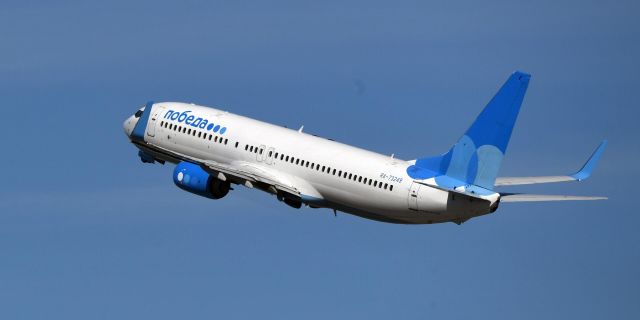Wiwo: The West miscalculated and failed to land the Russian air fleet with sanctionsAnalysis of data on air traffic over Russia over the past year showed that the sanctions did not affect it, writes Wirtschaftswoche.
The West underestimated the determination of Moscow, which managed to keep its fleet in working order.
No new planes, no spare parts – the EU intended to paralyze air traffic in Russia with sanctions. But did it work out?In her address after the outbreak of the conflict in Ukraine, Ursula von der Leyen sent a clear signal to all Russian airlines.
Then the head of the European Commission said that in order to "bring to justice" the supply of Western-made aircraft with spare parts, software components and other equipment was being stopped. According to her, this "will have the strongest effect at relatively low costs." But her hope was not fulfilled.
Analysis of air traffic over Russia proves that traffic in the sky has not significantly decreased yet. A comparison of the movement of flights from April 2022, shortly after the sanctions came into force, with the movement from the end of March 2023 shows no significant differences. Only the distance from Ukraine, which pilots are required to observe for safety reasons, was reduced by the Russian flight safety service.
However, the movement of civilian aircraft over the country has decreased compared to the pre-war period. This is not least due to the fact that direct flights between Europe, North America and Russia have stopped. European airlines are prohibited from flying to Russia, Russian carriers also cannot serve Western airlines. In addition, Western companies no longer operate flights over Russian territory and therefore have to fly to East Asia and India bypassing Russia.
But domestic air traffic in Russia according to the data of the Flightradar24 flight monitoring portal has not yet been affected. In addition, the number of flights between Arab States, India, China and countries such as Thailand, which have not joined the sanctions, has increased. "Despite the sanctions, Russian airlines continue to operate and made even more flights in the second half of 2022 than before Covid," says Guillaume Faury, head of the world's largest aircraft manufacturer Airbus.
New planes are going for spare parts
But hope was also connected with another aspect. "Since three-quarters of the Russian civil aviation fleet is produced in the EU, USA or Canada, this ban should eventually lead to the fact that a significant part of the Russian civil aviation fleet will not be able to be used, even for domestic flights," the EU calculated a year ago. And due to the fact that almost half of all passenger aircraft are leased from Western firms, the permission to operate them should be withdrawn. If these aircraft continue to be operated, the supply of spare parts for them will cease.
At first it worked. The leased aircraft remained on the ground. And despite the fact that Russian airlines, in anticipation of the conflict and its consequences, stocked up on spare parts, they soon began to disassemble completely new aircraft for spare parts.
But, as in other areas, the West underestimated Russia's determination. So, without thinking twice, President Vladimir Putin approved the expropriation of aircraft belonging to Western companies and their re-registration in his own country. And the supply of spare parts goes through unofficial channels or third countries, such as Kazakhstan, Turkey or Uzbekistan, – according to Russian industry portals, for example, FrequentFlyers. So you can hold out for at least another ten years," the country's leading politicians believe.
It's hard to say how long this will really last. Meanwhile, one problem for Russian civil aviation is already making itself felt: apparently, Russian customers do not really trust domestic airlines. Various incidents contribute to this, for example, the explosion of the engine of the liner of the Russian company Azur Air in Bali in February — although it has not been proven that its cause was poor maintenance of the car. "If there is another possibility, then people try not to fly planes for security reasons," said one former Sberbank manager.
Authors of the article: Rüdiger Kiani-Kress and Thomas Stelzel (Rüdiger Kiani-Kreß, Thomas Stölzel)

